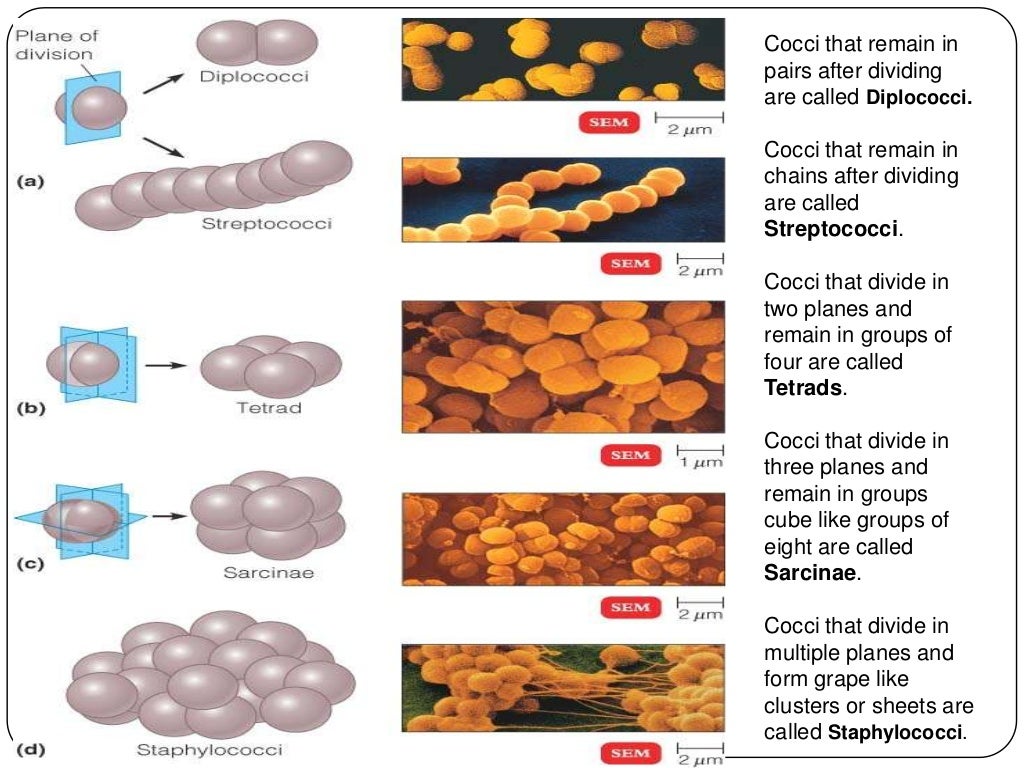38 bacterial cell without labels
Breaking free of labels | Nature Reviews Microbiology This month's Under the Lens discusses the use of a novel label-free imaging method to study pilus dynamics at high spatial and temporal resolution. Many pathogenic bacteria are able to crawl ... Label or Concept - What Is a Pathobiont? - Trends in Microbiology The term ´pathobiont´ has already been widely used to label bacteria that have been linked to a disease merely based on sequence-based correlations with diseased individuals [. 23. ]. This is inherently error-prone as microbial community shifts can also occur as a consequence of disease [. 24.
Structure - Medical Microbiology - NCBI Bookshelf All bacteria, both pathogenic and saprophytic, are unicellular organisms that reproduce by binary fission. Most bacteria are capable of independent metabolic existence and growth, but species of Chlamydia and Rickettsia are obligately intracellular organisms. Bacterial cells are extremely small and are most conveniently measured in microns (10-6 m). They range in size from large cells such as ...

Bacterial cell without labels
Bacteria - Definition, Structure, Diagram, Classification The structure of bacteria is known for its simple body design. Bacteria are single-celled microorganisms with the absence of the nucleus and other c ell organelles; hence, they are classified as prokaryotic organisms. They are also very versatile organisms, surviving in extremely inhospitable conditions. Such organisms are called extremophiles. Bacterial cell structure and function - Online Biology Notes Bacterial cell have simpler internal structure. It lacks all membrane bound cell organelles such as mitochondria, lysosome, golgi, endoplasmic reticulum, chloroplast, peroxisome, glyoxysome, and true vacuole. Bacteria also lacks true membrane bound nucleus and nucleolus. The bacterial nucleus is known as nucleoid. 3 Common Bacteria Shapes - ThoughtCo Bacillus (bacilli plural) bacteria have rod-shaped cells. These cells can exist in several different arrangements that include: Monobacillus: remains single rod-shaped cell after dividing. Diplobacilli: cells remain in pairs after dividing. Streptobacilli: cells remain in chains after dividing.
Bacterial cell without labels. Fast Label-Free Nanoscale Composition Mapping of Eukaryotic Cells Via ... Mapping the biochemical composition of eukaryotic cells without the use of exogenous labels is a long-sought objective in cell biology. Recently, it has been shown that composition maps on dry single bacterial cells with nanoscale spatial resolution can be inferred from quantitative nanoscale dielectric constant maps obtained with the scanning dielectric microscope. Label-free bacterial imaging with deep-UV-laser-induced native ... Label-free bacterial imaging with deep-UV-laser-induced native fluorescence Appl Environ Microbiol. 2010 Nov;76 (21):7231-7 ... Given exposure times of 100 μs and low excitation intensities, this technique enables rapid imaging of bacterial communities and cells without irreversible sample alteration or destruction. We also demonstrate the ... Morphology, Different shapes of bacterial cell - BYJUS Different shapes of a bacterial cell are: Spherical- Cocci. Rod-shaped- Bacilli. Spiral bacteria. Comma shaped- Vibrio. 1. Spherical- Cocci: Cocci can be single or multiple in a group of 2, 4, 8, etc. Cocci bacteria can be round, oval or elongated or bean-shaped. The cell wall of coccus shaped bacteria may be gram-positive with thick ... Structure of Bacterial Cell (With Diagram) - Biology Discussion Cell wall: It is a tough and rigid structure of peptidoglycan with accessory specific materials (e.g. LPS, teichoic acid etc.) surrounding the bacterium like a shell and lies external to the cytoplasmic membrane. It is 10-25 nm in thickness. It gives shape to the cell. Nucleus: The single circular double-stranded chromosome is the bacterial genome.
Bacteria Under the Microscope Mix the bacteria on the loop with the water you placed on the glass slide earlier and then flame your loop once again. Finally, allow the slide to air dry. Staining Procedure When looking at bacteria under the microscope much of the bacteria can appear transparent without staining. Staining allows different structural components of the cells to ... Designer label for a bacterial cell 'jacket' | UDaily Designer label for a bacterial cell 'jacket' Article by Tracey Bryant Photo by Evan Krape May 23, 2017. Video courtesy of Grimes Laboratory and Bio-Imaging Center. ... which would use it to build its jacket without affecting anything else," Grimes explained. "Once the label was incorporated, we figured we could put 'flashlights' on it ... Bacteria in Microbiology - shapes, structure and diagram Bacterial spores. Bacterial endospores layers. Bacteria cells are the smallest living cells that are known; even though viruses are smaller than bacteria, viruses are not living cells. There are different types of bacteria with various sizes, shapes, and structures. The bacteria shapes, structure, and labeled diagrams are discussed below. Components of Bacterial Cell: 7 Components (With Diagram) The following points highlight the seven important components of bacterial cell. The components are: 1. Cell Envelope 2. Cytoplasm 3. Nucleoid 4. Plasmids 5. Inclusion Bodies 6. Flagella 7. Pili and Fimbriae. Bacterial Cell: Component # 1. Cell Envelope: It is the outer covering of protoplasm of bacterial cell.
Bacterial Cell Label - unlabeled bacteria cell diagram data diagram ... Bacterial Cell Label - 16 images - prokaryotic bacteria cell 1, multiple choice diagram quiz on bacterial cell biology multiple, bacteria, label the bacterium cell, Bacteria Under The Microscope - Types, Morphology and Reproduction The main methods of reproduction among bacteria include: Binary fission - Binary fission is the main method of reproduction. The process starts with the cell growing in size and then splitting into two separate cells. Before the cell splits into two, the genetic material has to be copied and separated into two copies that move to the polar ends ... "Raised Without Antibiotics" Labels Found to be Misleading There is growing concern about whether our antibiotics can keep pace with the threats posed by new and emerging bacterial pathogens. Already, it's estimated that 700,000 people around the world die every year from antibiotic resistant infections, and scientists and experts have been warning that the problem will only get worse in the future. As such, there is pressure to limit the use of ... Stains - Microbiology Resource Center - Truckee Meadows ... - TMCC Almost all bacteria can be divided into two groups, Gram negative or Gram positive. A few bacteria are gram variable. Trichomonas, Strongyloides, some fungi, and some protozoa cysts also have a Gram reaction. Very small bacteria or bacteria without a cell wall, such as Treponema, Mycoplasma, Chlamydia, or Rickettsia do not have a gram reaction ...
Label The Bacterial Cell Key Beautiful Solved Quiz Chapter 4 Label The Label The Bacterial Cell Key Beautiful Solved Quiz Chapter 4 Label The images that posted in this website was uploaded by Media.nbcmontana.com. Label The Bacterial Cell Key Beautiful Solved Quiz Chapter 4 Label The equipped with a HD resolution 664 x 374.You can save Label The Bacterial Cell Key Beautiful Solved Quiz Chapter 4 Label The for free to your devices.
Bacteria Label Teaching Resources | Teachers Pay Teachers Plant Cell, Animal Cell, Bacteria Cell Structure Science Poster Labels Anatomy. by. Mrs Wonder's Classroom. $10.00. Zip. Bright colorful set of 3 science printable posters. Plant, Animal and Bacteria cell structure with labels to be used as educational art for any kid's playroom, classroom, Montessori or homeschooling areas.Science Printable ...
Biology Pictures: Cell Membrane Structure without labels | Biology ... Cell Membrane Structure without labels. Biology Pictures: Large collection of high quality biology pictures, photos, images, illustrations, diagrams and posters on marine biology, cell biology, microbiology... for educational purposes. ... This introduction to the structure of plant, animal and bacterial cells is accomplished with mobile ...
Introduction to Bacteria - Let's Talk Science Bacterial cells are much smaller than human cells. Bacterial cells can measure from about 1 to 10 μm long. Most of them are only about 1 to 2 μm in diameter. 1 μm, or micrometre, is 1 000 times smaller than a millimetre. That is very tiny! It's much smaller than the human red blood cell, which is (on average) about 7 μm in diameter.
Rapid identification of pathogenic bacteria using Raman ... - Nature Because patient samples may contain very low numbers of bacterial cells without culturing (e.g. 1 CFU/mL or fewer in blood 40), only a few individual bacterial spectra per patient may be available ...

Bacterial Cell No Labels Clip Art at Clker.com - vector clip art online, royalty free & public ...
Bacterial cells - Cell structure - Edexcel - GCSE Combined Science ... Bacterial cells. Bacteria are all single-celled. The cells are all prokaryotic. This means they do not have a nucleus or any other structures which are surrounded by membranes. Larger bacterial ...
Microbiology Chapter 6 Flashcards - Quizlet Microbiology Chapter 6. Drag the labels to complete each of the sentences that discuss treatment and prevention of viral diseases. ... Antibiotics thats destroy bacterial cells ideally exhibit _____1_______, that is, they target cellular components that the infected human cells lack, such as ______2_____ and 70s ribosomes.
Bacterial Cell No Labels clip art - clker.com Download Clker's Bacterial Cell No Labels clip art and related images now. Multiple sizes and related images are all free on Clker.com. Facebook Login; X. E-mail Password. ... bacterial cell without labels; bacterial cell no labels; cell no labels; bacteria cell without labels; Advertise on clker; Report a bug; Request a feature; tag; FAQ;
Bacterial Cell No Labels Clip Art at Clker.com - vector clip art online, royalty free & public ...
Bacterial Cell Structure Labeling Diagram | Quizlet Bacterial Microcompartment. Protein coated packets used to localize enzymes and other proteins into the cytoplasm. Plasmid. Double-stranded DNA circle containing extra genes. Flagella. specialized appendage attached to the cell by a basal body that holds a long rotating filament. Pushes cell forward. Endospore.
Bacteriophage - Wikipedia A bacteriophage (/ b æ k ˈ t ɪər i oʊ f eɪ dʒ /), also known informally as a phage (/ ˈ f eɪ dʒ /), is a virus that infects and replicates within bacteria and archaea.The term was derived from "bacteria" and the Greek φαγεῖν (phagein), meaning "to devour".Bacteriophages are composed of proteins that encapsulate a DNA or RNA genome, and may have structures that are either ...
3 Common Bacteria Shapes - ThoughtCo Bacillus (bacilli plural) bacteria have rod-shaped cells. These cells can exist in several different arrangements that include: Monobacillus: remains single rod-shaped cell after dividing. Diplobacilli: cells remain in pairs after dividing. Streptobacilli: cells remain in chains after dividing.
Bacterial cell structure and function - Online Biology Notes Bacterial cell have simpler internal structure. It lacks all membrane bound cell organelles such as mitochondria, lysosome, golgi, endoplasmic reticulum, chloroplast, peroxisome, glyoxysome, and true vacuole. Bacteria also lacks true membrane bound nucleus and nucleolus. The bacterial nucleus is known as nucleoid.
Bacteria - Definition, Structure, Diagram, Classification The structure of bacteria is known for its simple body design. Bacteria are single-celled microorganisms with the absence of the nucleus and other c ell organelles; hence, they are classified as prokaryotic organisms. They are also very versatile organisms, surviving in extremely inhospitable conditions. Such organisms are called extremophiles.







Post a Comment for "38 bacterial cell without labels"